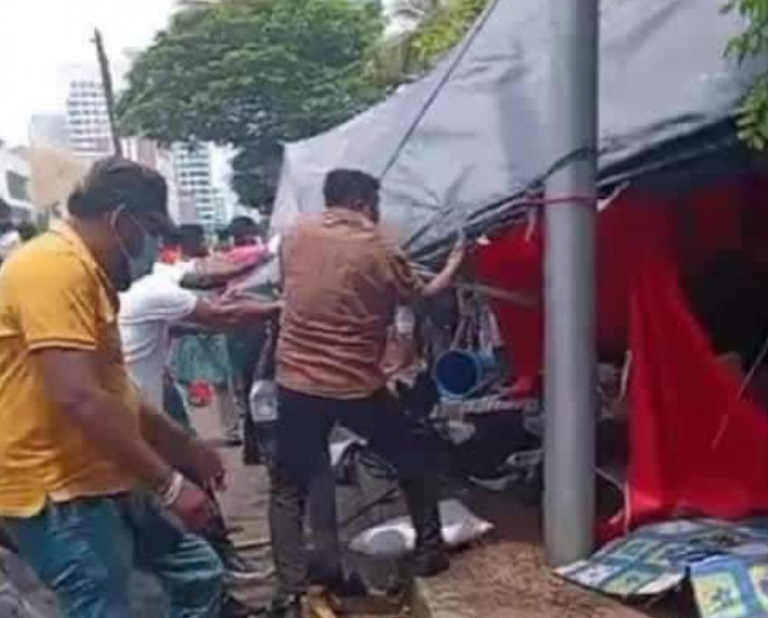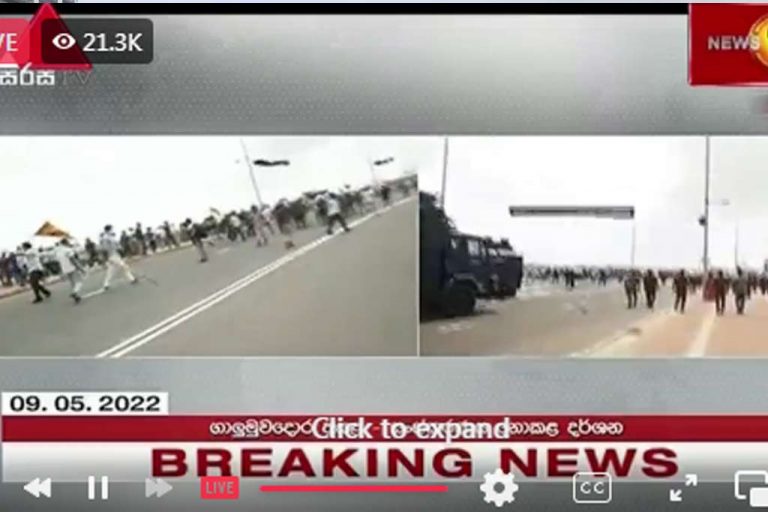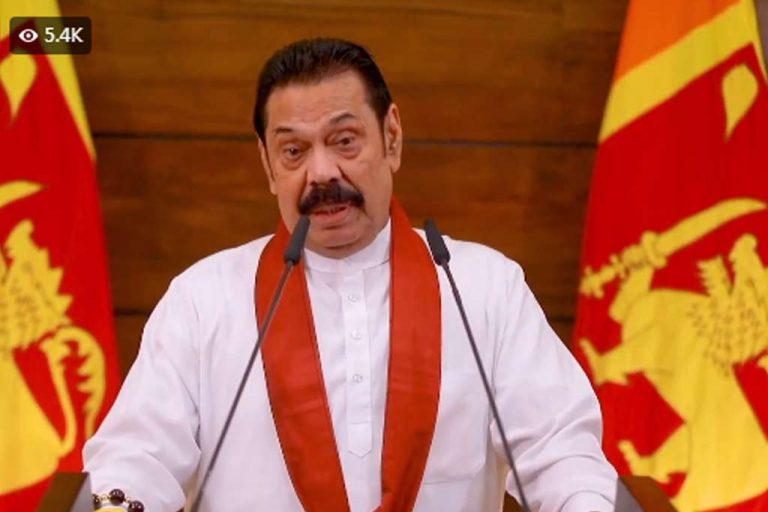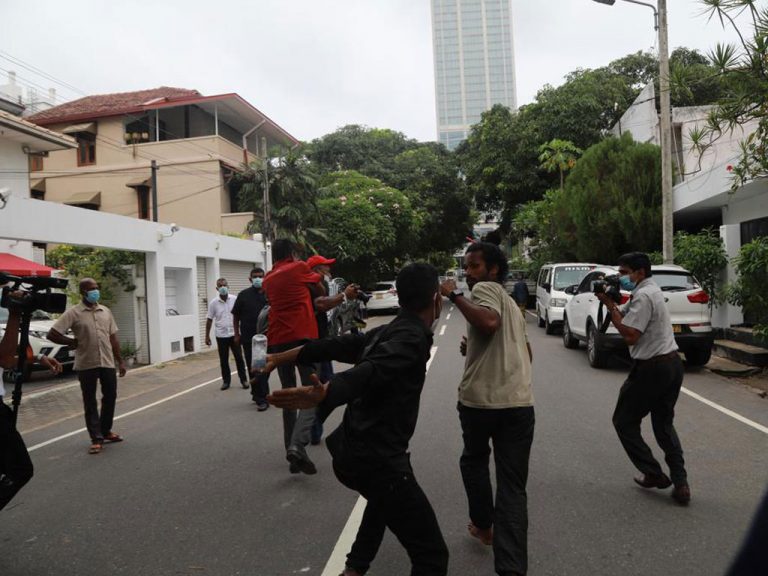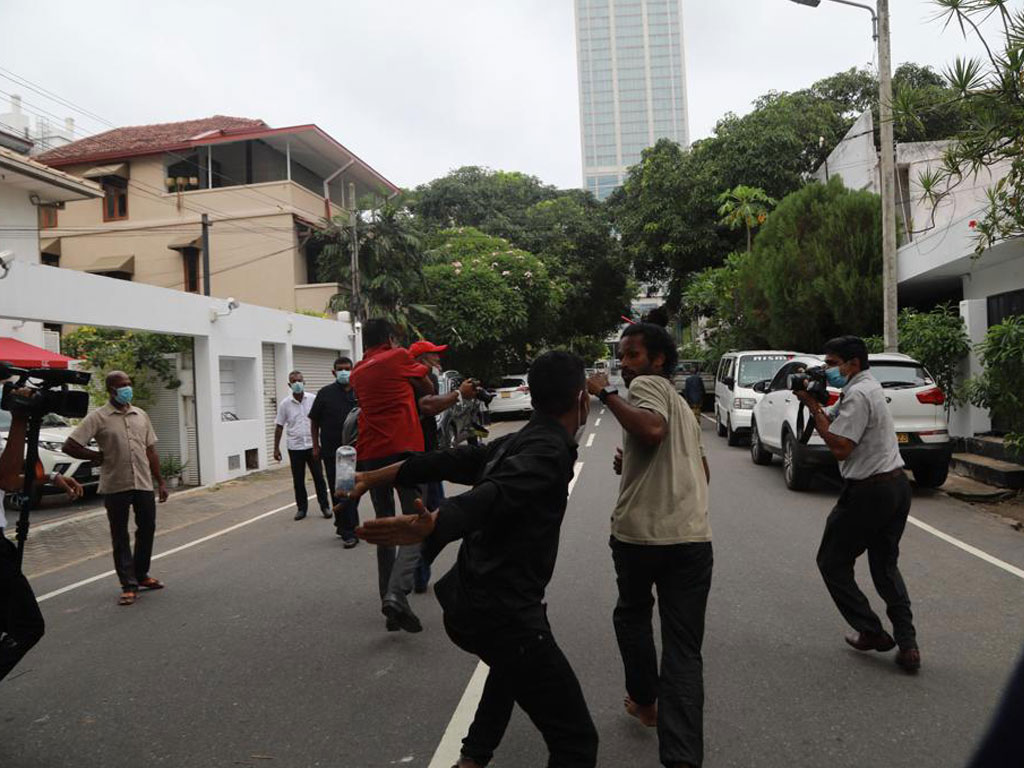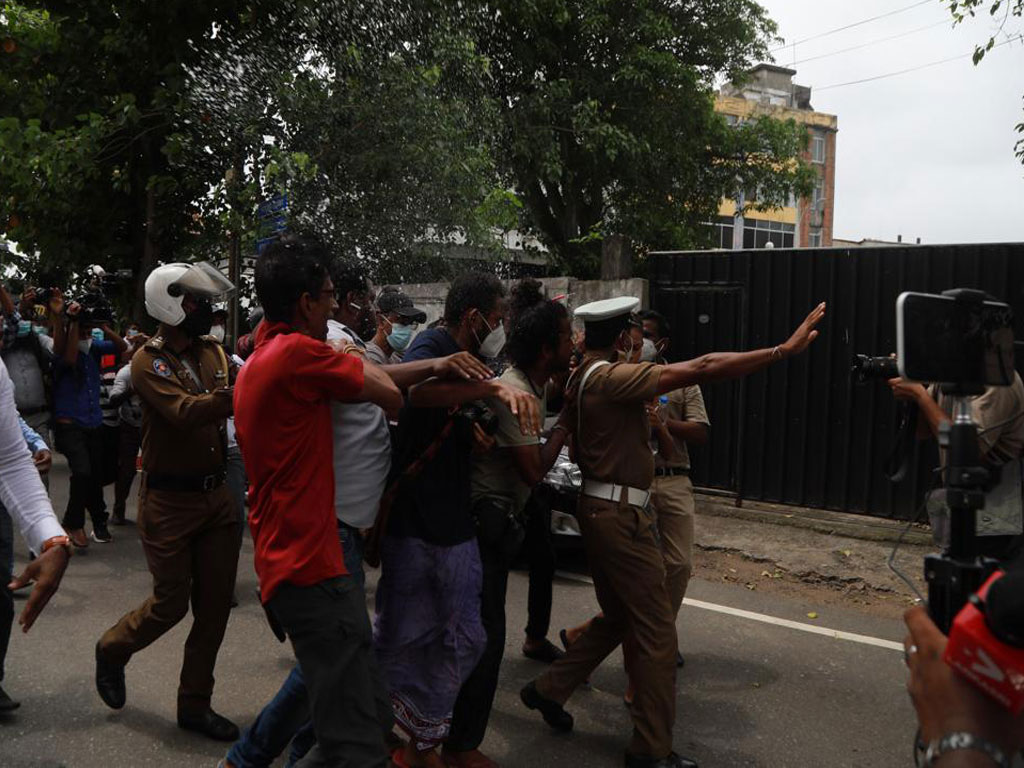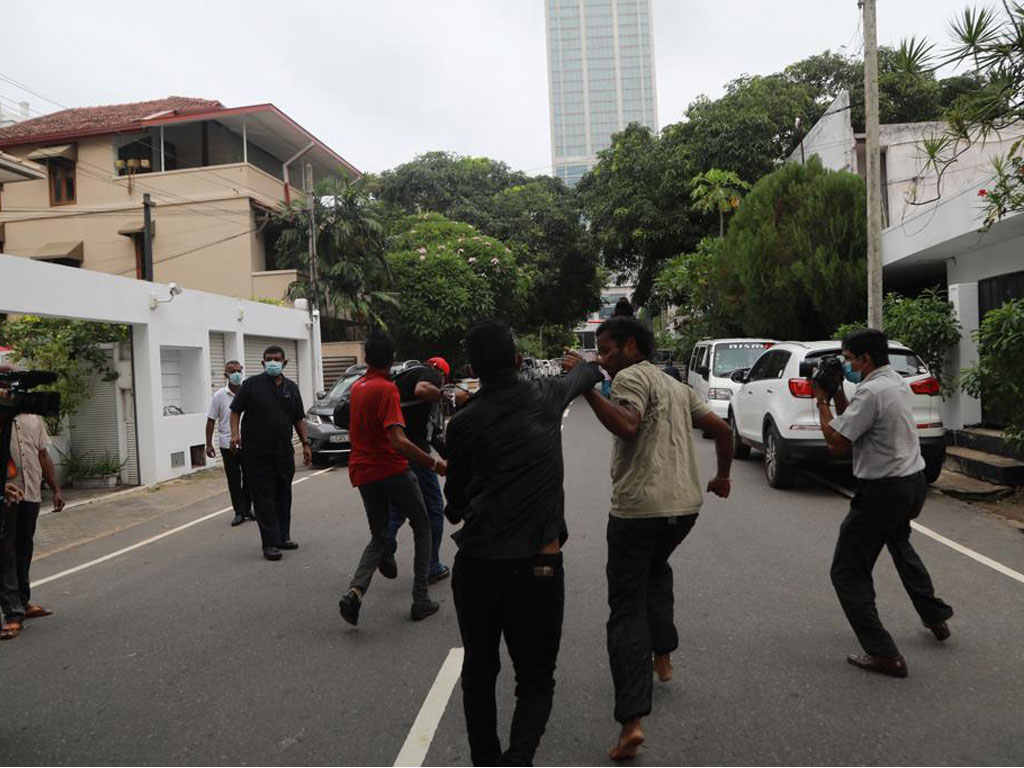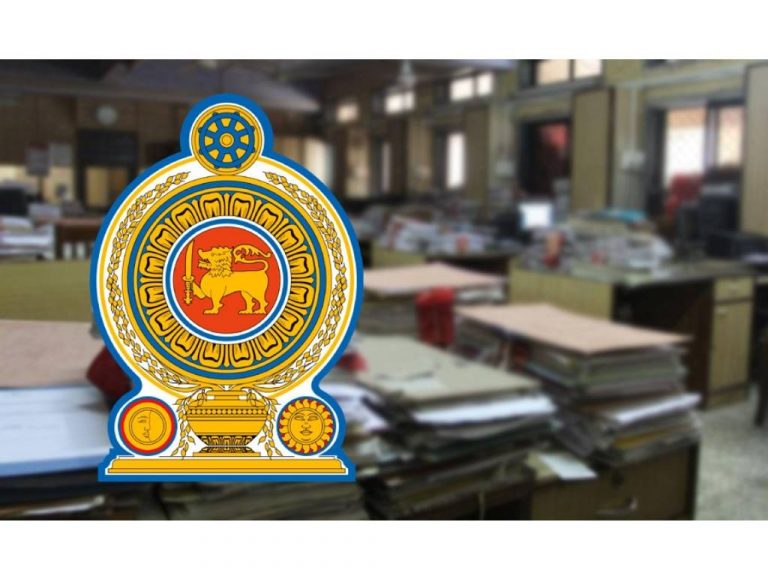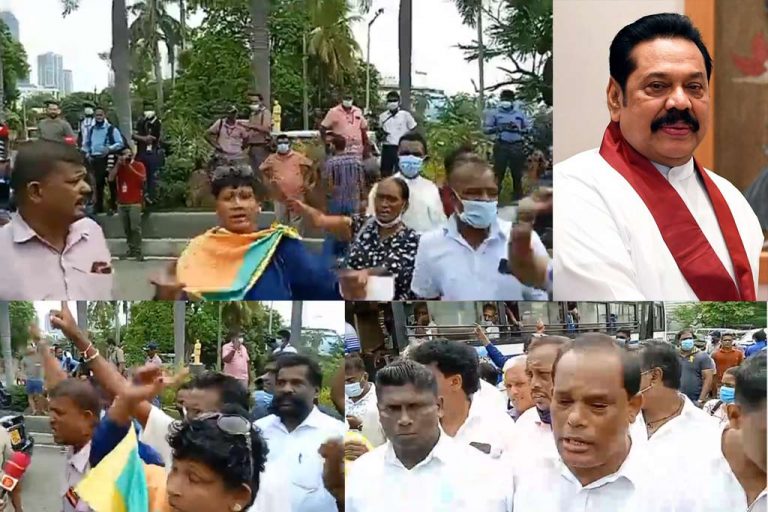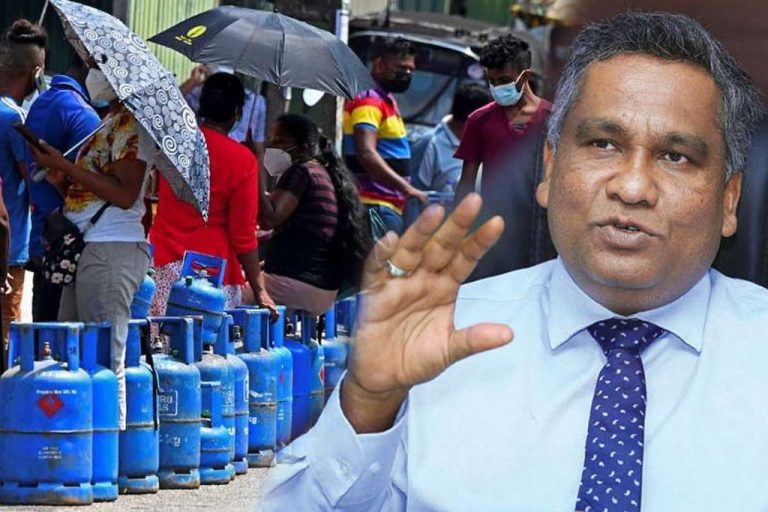Prime Minister Mahinda Rajapaksa addressing a large gathering at Temple Trees today (09) has announced his decision in response to the much speculated resignation.
“We do not wish to destabilise the country. My policy is to face challenges and overcome challenges. We have no habit of fleeing in the face of challenges. We have set precedents for them.”
“In the face of the economic crisis, the Opposition is pursuing its own political agenda. All they need is power.”
“The Mahanayake Theros and the Cardinal are calling for an all-party government.”
“The President can come to a decision without any hindrance.”
“If a decision is made in the public’s interest, I am ready to make any sacrifice for it.”
“It was the trust you placed in me that brought me into politics.”
“I’m asking you what to do now.”
“We’re ready to come to a decision with you.”
“Motherland first. Motherland second. Motherland third.”
“Suba Anagathayak to you all.”
MIAP




